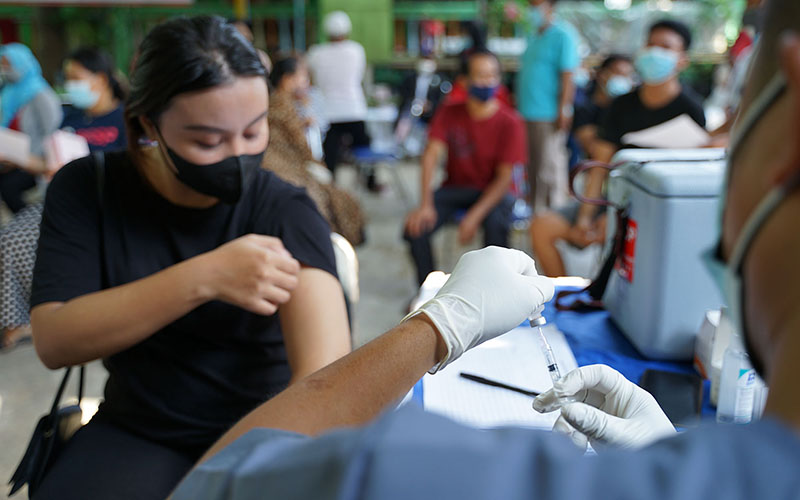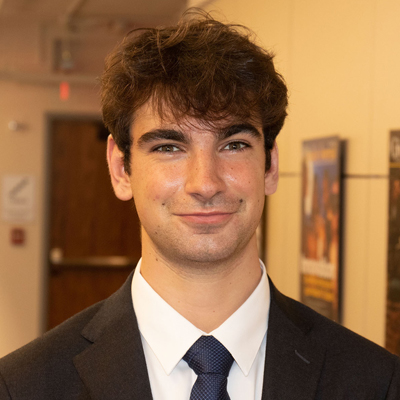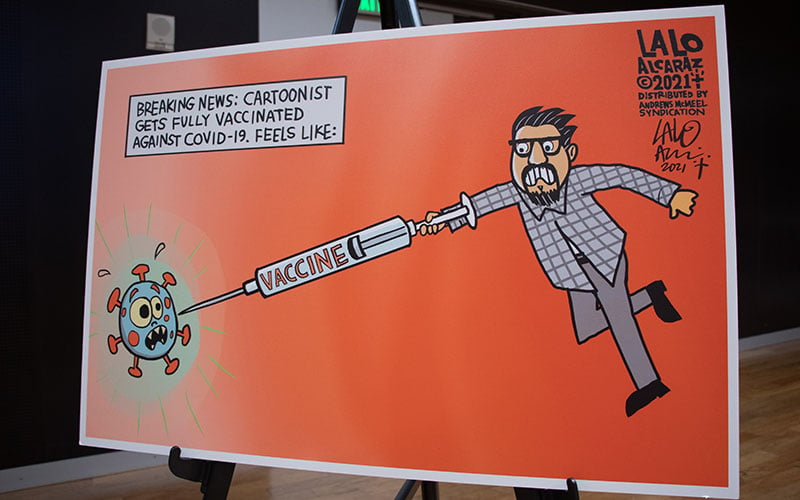
A study of Medicare beneficiaries by the Department of Health and Human Services found that COVID-19 vaccinations may have saved as many as 39,000 lives across the country – about 1,000 of them in Arizona – and cut into the number of new cases and hospitalizations as well. (Photo courtesy U.S. AID Indonesia)
WASHINGTON – COVID-19 vaccinations have saved an estimated 1,000 lives in Arizona and have prevented as many as 2,800 hospitalizations for the disease, according to recent estimates from the Department of Health and Human Services.
The study of Medicare beneficiaries by researchers with the HHS Office of the Assistant Secretary for Planning and Evaluation also said that an estimated 6,800 COVID-19 infections were prevented in Arizona among elderly residents who had received the vaccine.
Experts hailed the report as proof that “the vaccine works,” particularly among the senior population.
“It shows very clearly that the vaccine works, and that in this particular case seniors really benefited from being vaccinated, especially early,” said Dr. Georges Benjamin, executive director of the American Public Health Association.
The study looked at a sample of 25.3 million Medicare beneficiaries and found vaccinations were linked to 107,000 fewer infections, 43,000 hospitalizations and 16,000 deaths. When those numbers were extrapolated out to the full Medicare population of 62.7 million people, the report said, it found an estimated “reduction of 265,000 COVID-19 infections, 107,000 hospitalizations, and 39,000 deaths” among Medicare beneficiaries between January and May 2021.
“The report estimated the number of COVID-19 infections, hospitalizations (within 3 weeks of infection), and deaths (within 9 weeks of infection) in two situations: with vaccination and without vaccination,” said Simone Myrie, an HHS spokesperson, in statement. “The difference between the estimated infections in the two situations was considered the reduction in COVID-19 infections.”
The numbers make sense to Will Humble, the executive director of the Arizona Public Health Association.
“It’s not surprising that it was such an effective intervention given how lethal the virus ended up being for seniors,” he said.
That age group has suffered the worst of COVID-19 deaths: In Arizona, 72% of the 20,319 deaths were among people age 65 and older, while 77.9% of the 707,065 deaths nationwide were in that age group.
But it has also seen the highest vaccination rates.
For Arizona residents age 65 and older, the age range covered by Medicare, 92.1% had received at least one dose of the coronavirus vaccine as of Friday, well above the overall state rate of 57.8%, according to the latest numbers from the Arizona Department of Health Services. Nationally, 94.8% of those 65 and older are vaccinated, compared to an overall rate of 65.2%, according to the Centers for Disease Control and Prevention.
Humble said vaccinating seniors is good for their health, but may do little to curb the disease in the larger population since “seniors are not a really good vector of spreading the disease, because their social behavior isn’t nearly as congregate as kids.”
“If you were going to select a target, a population with saturating with vaccine and with the goal of reducing the spread of COVID-19 throughout all population you would focus on your efforts on people in their 20s,” Humble added. “And combined with the fact that we still don’t have a vaccine for kids under 11, that is amplifying the virus as well.”
The same is true of booster shots, which will likely have only a “marginal effect” on the spread of the virus among the general population, he said.
“Giving vaccinated people a booster shot is not going to help very much from a population health perspective, but if we could do a much better job at getting those unvaccinated people vaccinated, that’s where you could have the biggest impact,” he said.
But Benjamin said the news on vaccinations is still good, for seniors and for the overall population.
“This is a forecast of good things to come,” said Benjamin, who said the report “tells us a lot about how protective the vaccine is overall.”
“We have a quarter million people not getting sick and so many deaths saved, and that’s a phenomenal finding,” he said.


